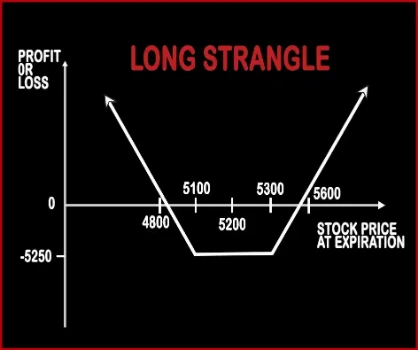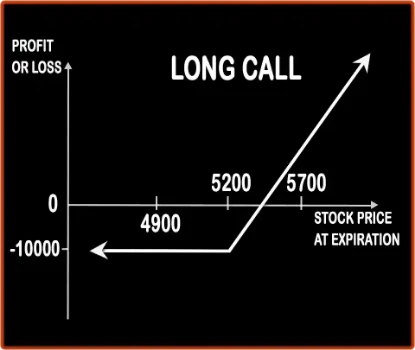Compare Strategies
| LONG STRANGLE | LONG CALL | |
|---|---|---|

|

|
|
| About Strategy |
Long Strangle Option StrategyA Strangle is similar to Straddle. In Strangle, a trader will purchase one OTM Call Option and one OTM Put Option, of the same expiry date and the same underlying asset. This strategy will reduce the entry cost for trader and it is also cheaper than straddle. A trader will make profits, if the market moves sharply in either direction and gives extra-ordinary returns in the |
Long Call Option StrategyThis is one of the basic strategies as it involves entering into one position i.e. buying the Call Option only. Any investor who buys the Call Option will be bullish in nature and would be expecting the market to give decent returns in the near future. Risk:
|
LONG STRANGLE Vs LONG CALL - Details
| LONG STRANGLE | LONG CALL | |
|---|---|---|
| Market View | Neutral | Bullish |
| Type (CE/PE) | CE (Call Option) + PE (Put Option) | CE (Call Option) |
| Number Of Positions | 2 | 1 |
| Strategy Level | Beginners | Beginner Level |
| Reward Profile | Unlimited | Unlimited |
| Risk Profile | Limited | Limited |
| Breakeven Point | Lower Breakeven Point = Strike Price of Put - Net Premium, Upper Breakeven Point = Strike Price of Call + Net Premium | Strike Price + Premium |
LONG STRANGLE Vs LONG CALL - When & How to use ?
| LONG STRANGLE | LONG CALL | |
|---|---|---|
| Market View | Neutral | Bullish (Any investor who buys the Call Option will be bullish in nature and would be expecting the market to give decent returns in the near future.) |
| When to use? | This strategy is used in special scenarios where you foresee a lot of volatility in the market due to election results, budget, policy change, annual result announcements etc. | This strategy work when an investor expect the underlying instrument move in upward direction. |
| Action | Buy OTM Call Option, Buy OTM Put Option | Buying Call option |
| Breakeven Point | Lower Breakeven Point = Strike Price of Put - Net Premium, Upper Breakeven Point = Strike Price of Call + Net Premium | Strike price + Premium |
LONG STRANGLE Vs LONG CALL - Risk & Reward
| LONG STRANGLE | LONG CALL | |
|---|---|---|
| Maximum Profit Scenario | Profit = Price of Underlying - Strike Price of Long Call - Net Premium Paid | Underlying Asset close above from the strike price on expiry. |
| Maximum Loss Scenario | Max Loss = Net Premium Paid | Premium Paid |
| Risk | Limited | Limited |
| Reward | Unlimited | Unlimited |
LONG STRANGLE Vs LONG CALL - Strategy Pros & Cons
| LONG STRANGLE | LONG CALL | |
|---|---|---|
| Similar Strategies | Long Straddle, Short Strangle | Protective Put |
| Disadvantage | • Require significant price movement to book profit. • Traders can lose more money if the underlying asset stayed stagnant. | • In this strategy, there is not protection against the underlying stock falling in value. • 100% loss if the strike price, expiration dates or underlying stocks are badly chosen. |
| Advantages | • Able to book profit, no matter if the underlying asset goes in either direction. • Limited loss to the debit paid. • If the underlying asset continues to move in one direction then you can book Unlimited profit . | • Less investment, more profit. • Unlimited profit with limited risk. • High leverage than simply owning the stock. |